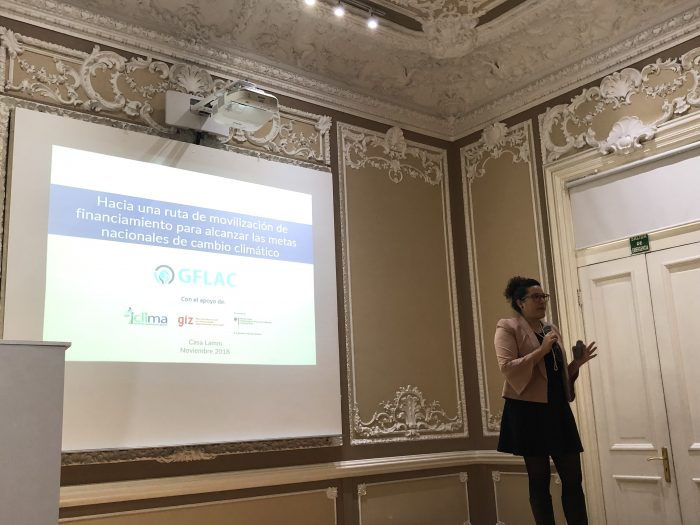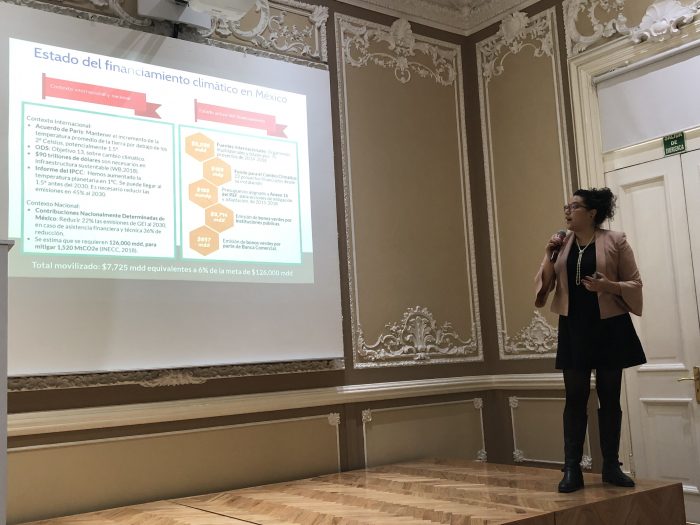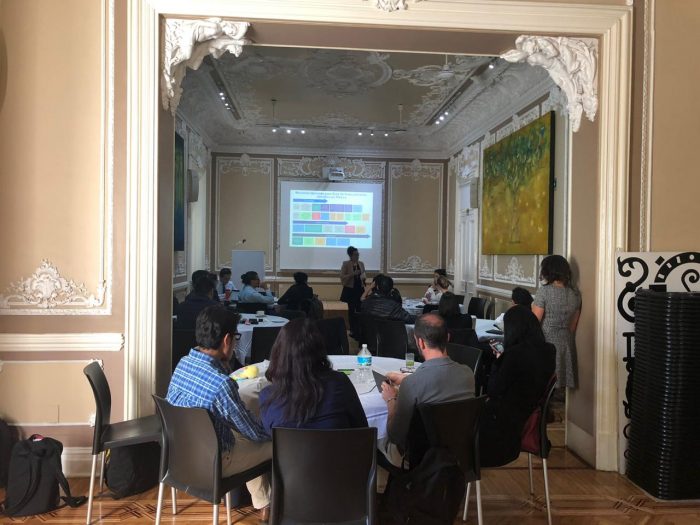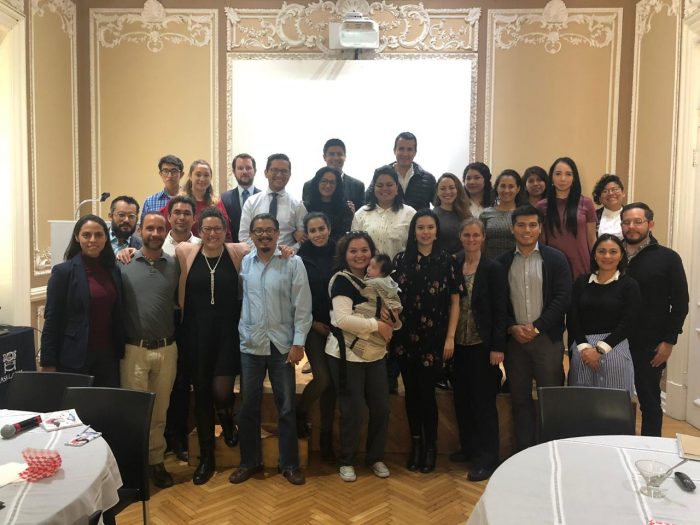At the Perspectives on Climate Finance in Mexico 2018-2024 dialogue, the findings of the working document Towards a Climate Financing Mobilization Route were presented. Participants also shared the results of multiple climate efforts, exchanged lessons learned and discussed financing prospects for 2018-2024.

On November 22, 2018, the Perspectives on Climate Financing in Mexico 2018-2024 dialogue was held in Mexico City. The event was attended by 35 people from different civil society, private sector and public institutions, as well as by international organizations and cooperation agencies.

The purpose of the dialogue was to present the document entitled Towards a Climate Financing Mobilization Route and to share the results of several efforts on climate financing issues, including the Climate Finance Day in Mexico held on September 18, 2018. The activities were designed to help make a first diagnosis and develop a series of recommendations for finance mobilization in the coming years to meet Mexico’s Nationally Determined Contribution (NDC).

During the meeting, participants agreed that to establish a climate financing route, the different forms of financing need to be identified; there also needs to be a clear plan and definitions (taxonomy) for transforming the political, economic, energy and financial environments to combat climate change. In addition, priority actions that should be implemented in the short, medium and long term were identified:
Short term
- Include climate change as one of the strategic axes of the next National Development Plan and budget.
- Identify the financing needs by sector and subsector described in the NDC.
- Strengthen existing structures of the National System on Climate Change (SINACC).
- Install and define the operating rules of the Financing Group created within the Intersecretarial Commission on Climate Change (CICC).
- Create a multi-sectoral and multi-level coordination mechanism.
- Train national and local governments to identify the main needs; and create and structure a portfolio of projects or funding sources that can be accessed.
- Strengthen capacities in the private and financial sectors to improve decision making on where to direct investments.
- Create a monitoring, reporting and verification (MRV) system for climate financing.
Medium term
- Strengthen fiscal policies to diversify the country’s income and reduce dependence on fossil fuel.
- Improve the measurement and reporting of emissions at the local level (states and municipalities) and of companies.
- Implement early education and high-level programs on climate change.
- Create departments that address climate change issues in public institutions.
- Improve knowledge about project evaluation and investment priorities.
Long term
- Maintain dialogue mechanisms between the different actors.
- Mobilize significant amounts of financing to achieve a low emission economy.
- Create an agency specializing in climate financing that coordinates the issue’s agenda.

The dialogue was organized by the Climate Finance Group of Latin America and the Caribbean (GFLAC), in collaboration with the Deutsche Gesellschaft für Internationale Zusammenarbeit (GIZ) GmbH and the Climate Initiative of Mexico (ICM). It was the first in a series of exercises designed to generate an action plan on financing and promote dialogue among different actors so that resources can be mobilized to help Mexico meet its climate goals.
